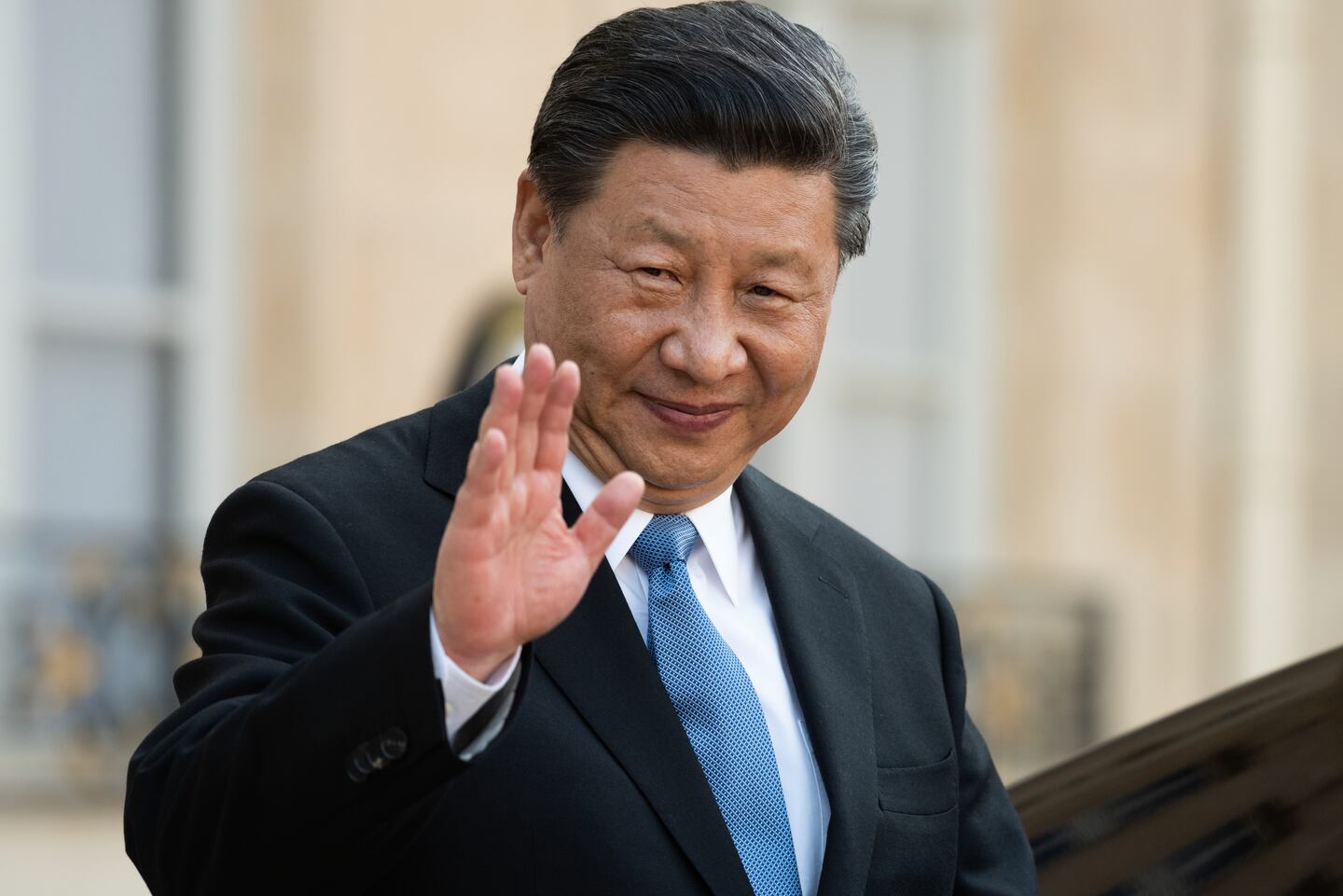- State-backed BSN working with HSBC and Fujifilm as it seeks corporate partners
- Critics worry BSN could be the web3 version of Huawei
- BSN Spartan network seeks international clients in the West
Every so often, a newcomer to Blockchain-based Service Network’s Telegram group pops the question: “Wen token?”
“We never issue cryptocurrencies,” the moderator invariably replies.
This isn’t the only turnoff for crypto users on the hunt for early-stage projects they can ride to the moon. The BSN, as the network is known, lacks virtually every enticement one expects in a crypto venture. Telegram group members? Not even 400. Discord group? Nada. And, of course, no tradable token, so forget airdrops.
NOW READ: Why Ethereum is so dominant — and why it’s not going anywhere
What’s more, the network’s own chairman, He Yifan, called crypto “the biggest Ponzi scheme in history.” Not exactly a ringing endorsement of Bitcoin, Ethereum and their progeny.
So why would anyone pay attention to this obscure entity? In a word, China.
Digital Belt & Road initiative
The BSN is a state-backed project designed to build blockchain technology for commercial and government customers. Launched in 2020, the Hong Kong-based network is providing digital ledger infrastructure to 1,500 companies, including Tokyo-based Fujifilm.
The BSN built the backbone for NFTChina, which launched in February and has already offered 1.5 million collections and registered 600,000 users. And HSBC, the British bank with deep roots in Hong Kong and Shanghai, is experimenting with the BSN for a payments system.
Beijing would love to have a hand in helping nations and industries build blockchain-based systems that can manage payments and other commercial functions.
Yet the BSN’s primary aim is to be a digital version of China’s Belt and Road Initiative, the 10-year-old program to develop infrastructure and garner influence across emerging economies in Asia and Africa. Beijing would love to have a hand in helping nations and industries build blockchain-based systems that can manage payments and other commercial functions.
The catch is that the authoritarian regime led by President Xi Jinping is intent on doing crypto on its own terms, starting with dispensing with digital tokens altogether.
NOW READ: EU muddies regulatory clarity on crypto with new tax reporting bill
The tack may raise questions about functionality of the blockchain networks BSN deploys — tokens, after all, are a core means for transferring assets. And the approach is bound to draw comparisons to private chains developed by Wall Street institutions, which DeFi purists have long dismissed as a bastardisation of cryptocurrency innovation.
But the BSN’s offering — blockchain without cryptocurrencies — is consistent with the draconian measures Beijing has taken in recent years to stamp out rampant speculation, as well as Bitcoin mining.
And with the full might of the Chinese state behind it, the BSN is poised to become a force in the rollout of blockchain technology in the emerging world.
New internet ecosystem
This has some observers worried.
“Blockchain developers in countries with democratic systems should realise that if they help build the BSN, they are constructing the Chinese Communist Party’s new internet ecosystem,” Yaya Fanusie, an adjunct senior fellow at the Center for a New American Security, testified to a US congressional commission in 2021.
It wasn’t that long ago that Huawei, the Chinese telecom giant, roiled the West with its rapid adoption and drew fire from political and business leaders for allegedly appropriating intellectual property and trade secrets from rivals. With the BSN, has Web3 found its version of Huawei?
The BSN was formed in 2020 by three powerful institutions: China’s State Information Center, the payments service UnionPay, and the state-run telecom company, China Mobile.
He Yifan, the CEO of Red Date Technology, a commercial enterprise, is responsible for the day-to-day running of the network.

For all its ambition, BSN may be building a centralised web2 venture for a decentralised web3 world. In 2020, Tan Min, the head of the Digital Economy Technology Promotion Group at China Mobile Design Institute and BSN’s secretary general said the group was building an internet where China has “independent intellectual property rights and controls the rights to internet access.”
NOW READ: Fidelity quietly promotes digital assets execs following key departure in senior ranks
This doesn’t exactly sync with the freewheeling ethos at the heart of DeFi. But it is the way China does business.
In recent years, Chinese tech companies going global have divided their international and domestic offerings to comply with data and privacy regulations inside and outside China.
The extent of the separation varies. Beijing-based ByteDance, for example, runs popular short video app Douyin in China, while 1.6 billion people elsewhere use the near-identical TikTok.
Verified users
In 2021, users of China’s social media messaging app WeChat received notifications telling them to switch to the international version if they had registered with a non-Chinese phone number. Those on the international version have access to fewer services, although communication is still possible between Chinese and non-Chinese accounts.
The BSN is no exception to this rule. While both its Chinese and international blockchain offerings are versions of public blockchains like Ethereum, each is adapted differently for its respective market.
In China, BSN-DDC, or Distributed Digital Certificate, blockchains are permissioned, meaning users have to be verified before they can use them. This makes them compliant with China’s know-your-customer laws, while also giving the businesses more control.
‘We don’t use cryptocurrencies’
Meanwhile, the international BSN Spartan Network’s blockchains are permissionless and can be used anonymously. Both versions are stripped of their ability to trade crypto tokens, though Spartan permits users to pay gas fees in USDC, the widely used stablecoin.
Introduced in December, the BSN Spartan Network has signed up 30 clients, Tim Bailey, Red Date’s vice president of global sales, told DL News. Bailey said that the BSN is capitalising on uncertainty around cryptocurrency regulation in the US.
“It’s much easier now to convince traditional businesses to use the BSN Spartan Network because we don’t use cryptocurrencies,” he says.
‘It’s much easier now to convince traditional businesses to use the BSN Spartan Network because we don’t use cryptocurrencies.’
— Tim Bailey
Among the users, HSBC has built a proof of concept for a B2B payment network on the BSN Spartan Network.
“People often think of blockchain when they think of payment-related use cases, so that one’s more obvious,” says Bailey.
But there are other uses, too. Fujifilm, the Japanese electronics conglomerate, has developed an application on the BSN for on-chain business contracts. Prenetics, a Hong Kong-based genetics and medical testing company listed in the Nasdaq, uses the BSN to anonymise test results.
NOW READ: Ether staking surge helps small players chip at Lido’s dominance: ‘A good thing’ for DeFi
While the BSN has a clear mandate to operate in China, outside its borders the venture must overcome the spectre of Huawei. In 2018, Le Monde published a report alleging the tech giant had installed spyware in the African Union Headquarters in Ethiopia.
The same year, Canadian authorities detained Huawei CFO Meng Wanzhou in Vancouver at the behest of US prosecutors and China retaliated by arresting two Canadian business executives, though Beijing denied any connection between the events.
The matter was eventually settled with the respective releases of Wanzhou and the Canadians but it left suspicion and acrimony in its wake.
TikTok lessons
Now TikTok has come under fire by human rights groups and other nations for its murky corporate structure and attempts to obfuscate how its international arm is controlled from Beijing.
It has also been criticised for apparently downgrading content unwanted by the Chinese regime, including videos about Xinjiang, the western province where the state has been accused of committing human rights abuses against native Uyghurs.
When it comes to the BSN, there are concerns about what the Chinese government can monitor on-chain, and what it could shut down. If the BSN became a force in the global payments and data system, this could be an urgent matter.
NOW READ: DeFi’s biggest exchange Curve Finance takes a shot at stablecoins
The BSN acknowledges these worries are an issue. Bailey pushed back on the idea that the BSN is invasive. “We don’t collect or have access to any corporate data,” he said.
“Everything is encrypted.” Bailey added that all of its solutions are open source and accessible to anyone who wants to perform a code audit.
Even so, Bailey said the state-owned groups managing the BSN in China aren’t involved in running the BSN Spartan Network. And the BSN is building a governance structure designed to assuage concerns about Beijing’s influence.
The BSN Foundation, a non-profit organisation overseeing the network, is based in Singapore and is planning to announce five partners in June that are supposed to have an equal say in governance of the network.
One of those will be Red Date, while the others will be global companies based in the US, India, and Europe. The BSN eventually wants 40 governance partners worldwide.
Keeping partners happy
Red Date has a lot riding on keeping all of its partners happy. For all its efforts at demonstrating its independence, it’s safe to say the BSN will function at the pleasure of the state. The recent history of Chinese tech companies shows how vulnerable the industry is to interference.
Look at Jack Ma, once the richest man in China and founder of multinational tech giant Alibaba. His misstep, it seems, was to publicly accuse Chinese banks of behaving like “pawnshops” and suggest the sector needed reforming. He now teaches sustainable agriculture and food production as a visiting lecturer at Tokyo College.
Clear opportunity
Yet the opportunity is clear. The promise of blockchain technology as a bulwark against forgery and deep fakes and to facilitate payments and building applications has captured the attention of President Xi.
With the support of the Chinese state behind it, the BSN has a springboard to rapidly scale and provide Beijing with another instrument for exerting its influence in the developing world.
Yet it comes with the necessity of believing the BSN and Red Date when they say the Spartan Network is independent — and will remain so. Looking at China’s record, that’s a big ask.
Have a tip on China crypto news? Contact the author at quinnishvili@gmail.com.



